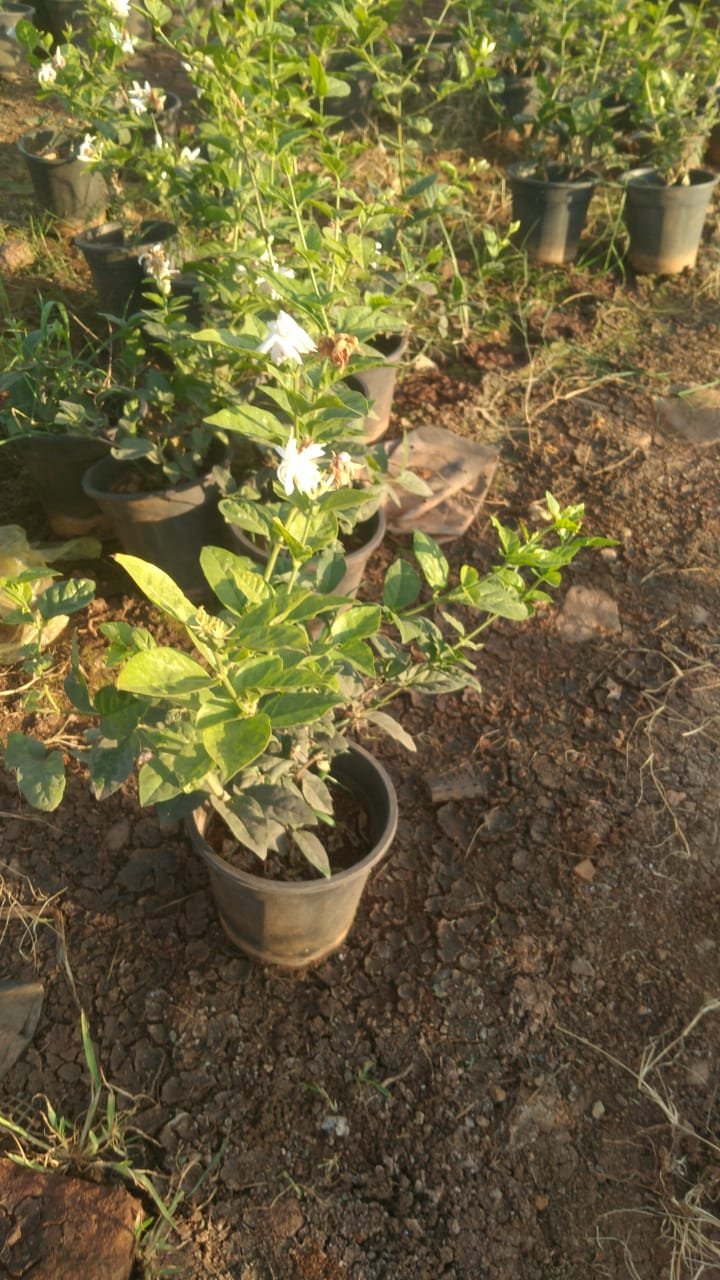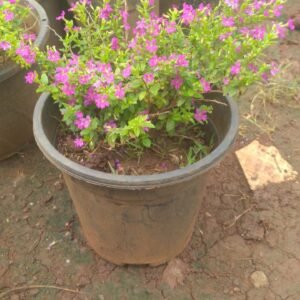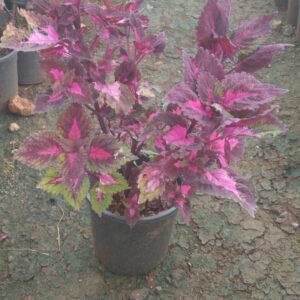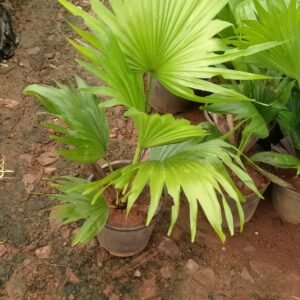Baramashi Mogra, scientifically known as Jasminum sambac, is a cherished flowering plant that holds a special place in the hearts of many, particularly in South Asian cultures. Often referred to as Arabian Jasmine or Sambac Jasmine, this plant is renowned for its exquisite fragrance and delicate white flowers. The name “Baramashi” translates to “twelve months,” highlighting the plant’s ability to bloom throughout the year, bringing beauty and aroma to gardens and homes no matter the season. Imagine walking through a garden where the air is filled with a sweet, intoxicating scent, inviting you to explore the enchanting blooms of Baramashi Mogra.
Appearance
Baramashi Mogra is a perennial shrub that typically grows to a height of about 3 to 6 feet. The plant features glossy, dark green leaves that create a striking backdrop for its beautiful white flowers. Each flower is small, with a star-like shape, and consists of five to nine petals. The blooms are often grouped in clusters and can appear throughout the year, especially in warm climates. Their rich, sweet fragrance is one of the plant’s most captivating features, making Baramashi Mogra a favorite for gardens and floral arrangements alike.
Cultural Significance
In many cultures, particularly in India and other parts of South Asia, Baramashi Mogra is deeply intertwined with tradition and spirituality. The flowers are commonly used in religious ceremonies, weddings, and festivals, symbolizing purity, love, and devotion. In Hindu culture, they are often offered to deities and worn as garlands during auspicious occasions. The enchanting aroma of Baramashi Mogra is believed to evoke feelings of peace and love, making it a cherished addition to rituals and celebrations.
Health Benefits
Beyond its cultural significance, Baramashi Mogra offers several health benefits that contribute to its popularity:
- Aromatherapy: The sweet fragrance of Baramashi Mogra is used in aromatherapy to promote relaxation and reduce stress. It is believed to have mood-enhancing properties that can uplift the spirit.
- Antioxidant Properties: The plant is rich in antioxidants, which help combat oxidative stress in the body and contribute to overall health and well-being.
- Skin Health: Baramashi Mogra is often used in traditional herbal remedies for skin care. Its soothing properties can help alleviate skin irritations and enhance complexion.
- Digestive Aid: In traditional medicine, the flowers are sometimes used to support digestive health and alleviate gastrointestinal issues.
Culinary Uses
In addition to its ornamental and medicinal applications, Baramashi Mogra also has culinary uses. The fragrant flowers can be infused into teas, desserts, and beverages, imparting a unique floral aroma that enhances the overall experience. In some cultures, they are used to flavor traditional sweets and drinks, adding a delightful touch to culinary creations.
Growing Baramashi Mogra
Growing Baramashi Mogra is relatively easy, making it an excellent choice for home gardeners. Here are some tips for cultivating this beautiful plant:
- Sunlight: Baramashi Mogra thrives in full sun to partial shade. It should receive at least 6 hours of direct sunlight each day for optimal growth and blooming.
- Soil: The plant prefers well-drained soil that is rich in organic matter. Adding compost can improve soil quality and provide necessary nutrients.
- Watering: Regular watering is essential, especially during the growing season. The soil should be kept consistently moist but not waterlogged. Allowing the top inch of soil to dry out between waterings is ideal.
- Pruning: Regular pruning helps maintain the plant’s shape and encourages bushier growth. It’s best to prune after flowering to promote new growth and blooms.






Reviews
There are no reviews yet.